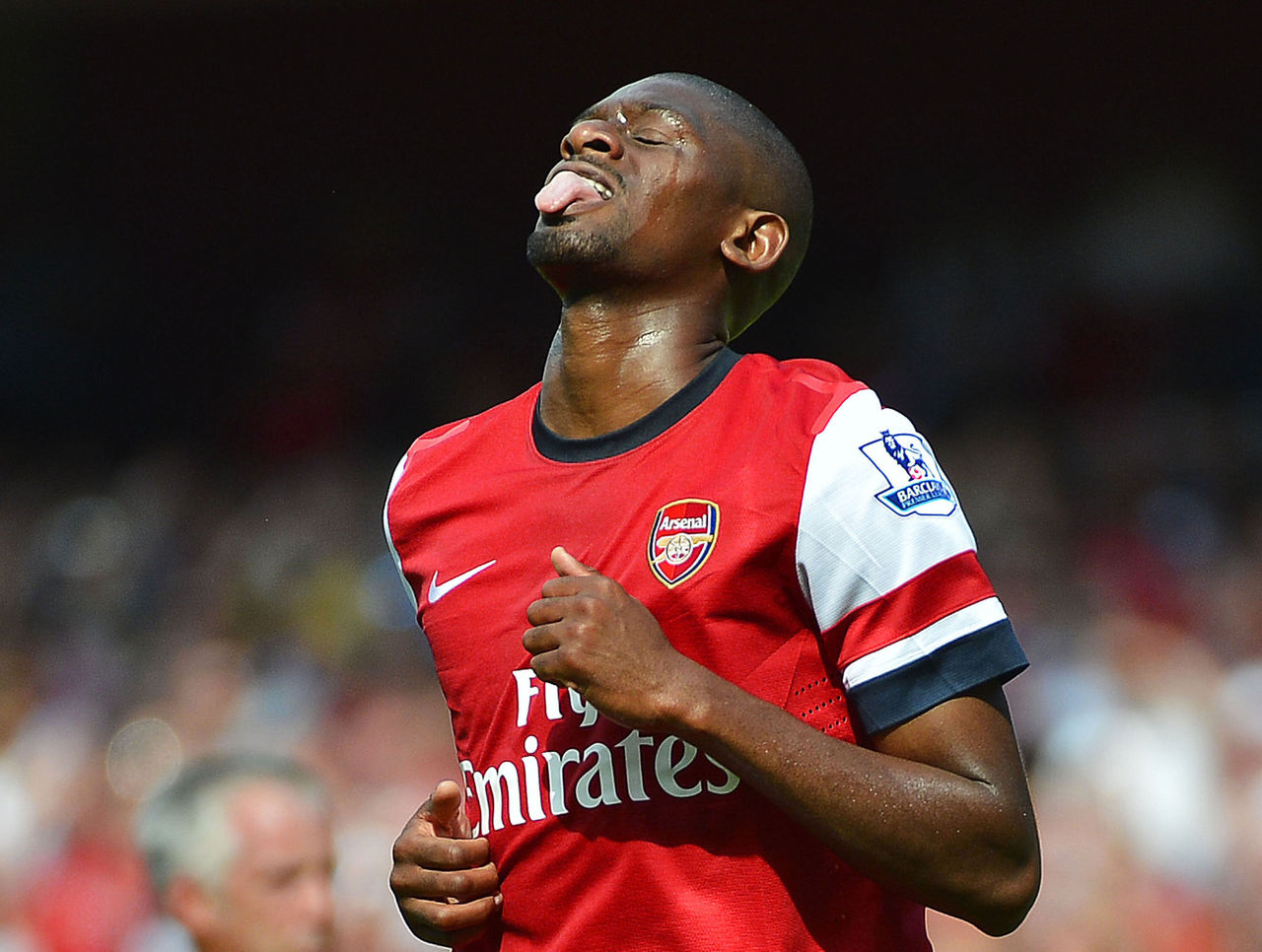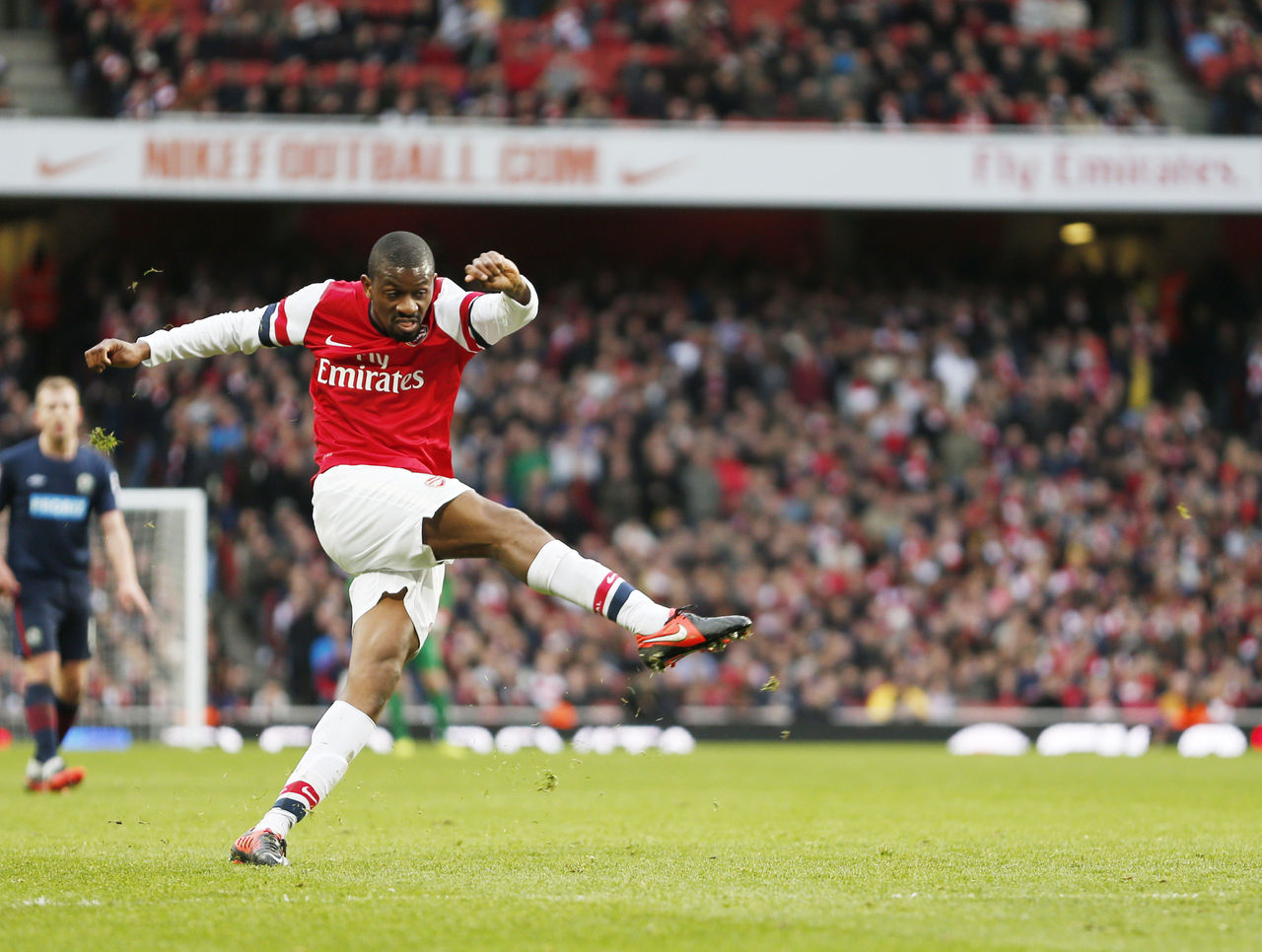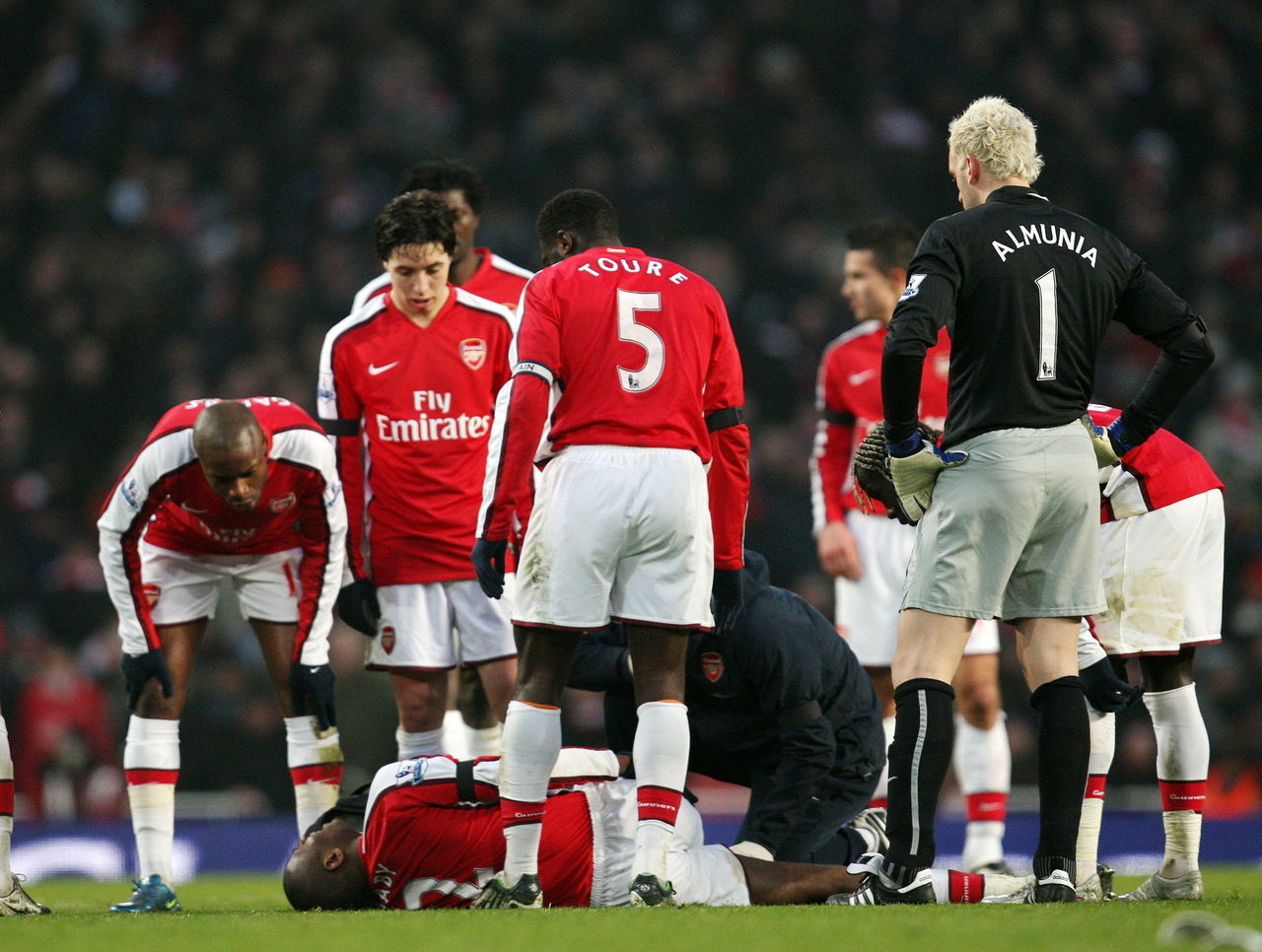Abou Diaby: The will of the perpetually injured footballer
On Wednesday, Abou Diaby played in a football match.
Following 17 months sidelined with the latest of a laundry list of injuries, angular midfielder Diaby returned to first-team football during Marseille's 2-0 victory over fourth-tier amateur side Trelissac FC at the Stade Chaban-Delmas.
Diaby started on the bench, and considering the tattered condition of Trelissac's pitch, it may have been a practical idea. He did not appear during the match, though the sight of him on Marseille's bench was just another step towards a highly anticipated return.
The round of 16 victory sees the south coast side advance to the quarterfinals to face Granville, with Michel's lot looking to win a record 11th Coupe de France trophy.
Football's equivalent of a mannequin constructed with kindling running through traffic, two questions have become synonymous with Diaby's career: when and for how long?
Wednesday was Diaby's third competitive match in three years on the heels of missing the entirety of last season for Arsenal, with the Auxerre academy product's return to fitness the symbol of a conquest for footballers whose careers have been cut short by injury.
For fans of the whimsical, this is for Marco van Basten, whose decorated career was halted prematurely when the Dutch practitioner of Total Football retired at 31 with ankle issues.
This is for France’s first football legend, Just Fontaine, who hung up his 13-goal World Cup boots a month short of his 29th birthday with injury.

Diaby’s fight is also for the lesser-known footballer. It's for former Chelsea wunderkind Sam Hutchinson, who retired at 21 with a recurring knee injuries only to return a year on prompting an eventual move to Sheffield Wednesday, where he singed a two-year-deal in June 2014 and has since made 42 appearances for the Owls.
This is for Spurs legend and Arsenal rival Ledley King, who was the face of the club for a decade, only to nix a career at 31 with chronic knee issues.
There’s a certain helplessness associated with recurring ailments.
King, an ambassador for Tottenham both as a level-headed centre-half and in retirement, was the poster boy for a career sidetracked by injuries. Then-Spurs boss, Harry Redknapp, spoke highly of his skipper with a tone of resignment, knowing there was only so much effort the London-born international could muster.
"There's no cure. There's no cartilage, nothing to operate on. It's just bone on bone. So it's just a question of managing it,” Redknapp told the Guardian in 2012.
"He rarely trains, he mostly just goes to the gym to keep himself ticking over.”
And that’s what presumably drives a footballer mad.
Like King, Diaby's career has become a venture coupled with pain and patience.
Once the next Patrick Vieira, or rather, a hybrid of the Invicibles midfield wall of Gilberto Silva and his fellow angular tradesman of robust tackles, Diaby was in the Wenger mould upon joining the club in 2006.
"It’s one of the saddest moments for us at Arsenal not to have had the opportunity to get the best out of Abou Diaby because of injury," Arsenal boss Arsene Wenger said in July.
While some may confuse Wenger's words for that of a self-serving statement putting club first, the Frenchman's relationship with the 16-time capped international was anything but.

Diaby, like current Gunner and fellow frequenter of the treatment table, Jack Wilshere, has received the gaffer's support during long-term spells on the sidelines amid calls from some supporters to cut the debilitated loose.
"I’m very sad because this boy is a massive and a huge talent. It’s sad as well because he didn’t deserve what he got. It’s sad as well because he’s a very serious player."
The Paris-born midfielder was a fan favourite, even when sidelined. He took a horrific tackle from an ever-mercurial Joey Barton and responded by nearly strangling the Scouser merchant of controversy. Upon having his leg shattered by Sunderland's Dan Smith in 2006, an enraged Diaby bounded on one foot, more concerned with exacting revenge on the Black Cats defender than his own health.
No other moment in Diaby's career was as emblematic of his stubbornness and fight.
Diaby’s move in the summer was a good day for European football. Rather than a club on the fridges of European relevance, Marseille was experiencing a summer of transition. Andre-Pierre Gignac, Andre Ayew, Giannelli Imbula, and Dimitri Payet were all sold, and a youth movement sparked with the entrance of Javier Manquillo, Karim Rekik, and winger Georges-Kevin Nkoudou paired with the emergence of star striker Michy Batshuayi gave promise.
Vincent Labrune signed Diaby and his friend and countryman Lassana Diarra the last week of July, two players whose careers were different versions of the same arc divided by parallel multiverse. Big clubs, big promise, one interrupted by injury, the other by trading the fringes of Europe’s biggest for the near-obscurity of Russia.
Diarra has been Marseille's midfield lynchpin, appearing in 22 matches in all competitions for the Cote D'Azur outfit.
Two players who in the summer of 2015 were desperate for another chance: Diarra, playing five-a-side in his native Paris following a disastrous spell with football's answer to failed start-ups Anzhi Makhachkala and Lokomotiv Moscow, Diaby, a link finally severed from his decade-served footballing surrogate Wenger at the Arsenal.

For every dizzying dribble and incisive pass, the modern footballer is a cliche of steadfastness and resolve where ambitions travel only as far as the body will allow. Faced with Diaby's obstacles, many would have given up, and the lanky purveyor of panache and languid midfield movements may very well be approaching that moment himself.
"Did I consider quitting? Yes, sometimes it crossed my mind but my love of football is so big that I just couldn't quit," Diaby told reporters in 2014.
Since his maiden brush with first-team football with Auxerre in 2004, Diaby has become synonymous with the plight of the oft-injured.
An autobiography that reads like a medical school textbook, each stanza of Diaby's story is divided by convoluted descriptions of how bones heel and how ligament damage is repaired.
Football fans are hopeful that there is yet another episode in the narrative of the 29-year-old, that Diaby's career has yet another chapter that ends for once not with heartbreak, but with triumph.